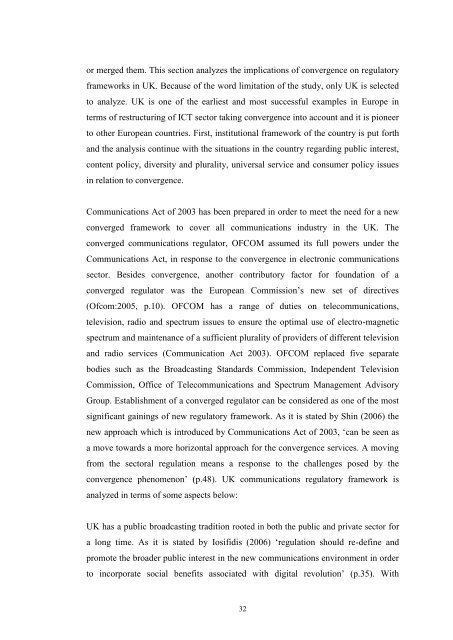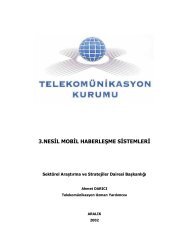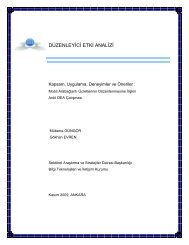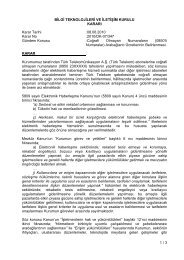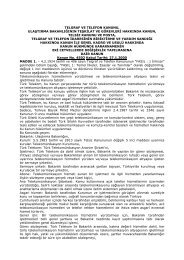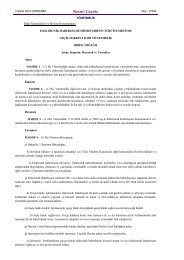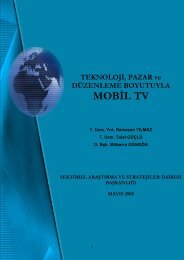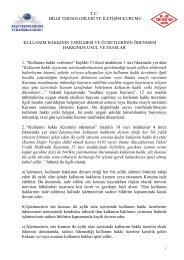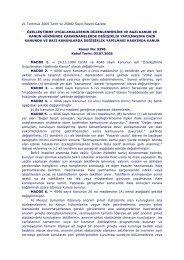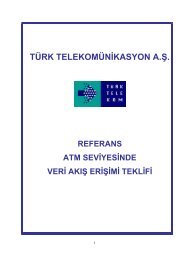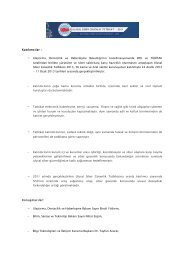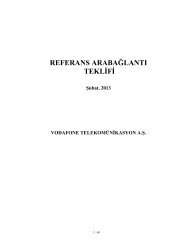city university london school of social sciences convergence of ...
city university london school of social sciences convergence of ...
city university london school of social sciences convergence of ...
Create successful ePaper yourself
Turn your PDF publications into a flip-book with our unique Google optimized e-Paper software.
or merged them. This section analyzes the implications <strong>of</strong> <strong>convergence</strong> on regulatoryframeworks in UK. Because <strong>of</strong> the word limitation <strong>of</strong> the study, only UK is selectedto analyze. UK is one <strong>of</strong> the earliest and most successful examples in Europe interms <strong>of</strong> restructuring <strong>of</strong> ICT sector taking <strong>convergence</strong> into account and it is pioneerto other European countries. First, institutional framework <strong>of</strong> the country is put forthand the analysis continue with the situations in the country regarding public interest,content policy, diversity and plurality, universal service and consumer policy issuesin relation to <strong>convergence</strong>.Communications Act <strong>of</strong> 2003 has been prepared in order to meet the need for a newconverged framework to cover all communications industry in the UK. Theconverged communications regulator, OFCOM assumed its full powers under theCommunications Act, in response to the <strong>convergence</strong> in electronic communicationssector. Besides <strong>convergence</strong>, another contributory factor for foundation <strong>of</strong> aconverged regulator was the European Commission‟s new set <strong>of</strong> directives(Ofcom:2005, p.10). OFCOM has a range <strong>of</strong> duties on telecommunications,television, radio and spectrum issues to ensure the optimal use <strong>of</strong> electro-magneticspectrum and maintenance <strong>of</strong> a sufficient plurality <strong>of</strong> providers <strong>of</strong> different televisionand radio services (Communication Act 2003). OFCOM replaced five separatebodies such as the Broadcasting Standards Commission, Independent TelevisionCommission, Office <strong>of</strong> Telecommunications and Spectrum Management AdvisoryGroup. Establishment <strong>of</strong> a converged regulator can be considered as one <strong>of</strong> the mostsignificant gainings <strong>of</strong> new regulatory framework. As it is stated by Shin (2006) thenew approach which is introduced by Communications Act <strong>of</strong> 2003, „can be seen asa move towards a more horizontal approach for the <strong>convergence</strong> services. A movingfrom the sectoral regulation means a response to the challenges posed by the<strong>convergence</strong> phenomenon‟ (p.48). UK communications regulatory framework isanalyzed in terms <strong>of</strong> some aspects below:UK has a public broadcasting tradition rooted in both the public and private sector fora long time. As it is stated by Iosifidis (2006) „regulation should re-define andpromote the broader public interest in the new communications environment in orderto incorporate <strong>social</strong> benefits associated with digital revolution‟ (p.35). With32


